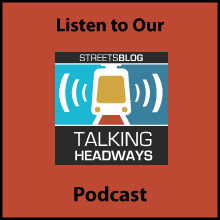The Overhead Wire Daily | DOT Accountability
November 14, 2024
Yesterday we shared a report from Brookings that looked at how State DOT’s could and should be more accountable in their transportation spending. It took the research team six months to catalogue how states select projects and what they found was that only nine states associate performance measures with long term planning goals and set targets. The rest obscure project selection and many times advocates have no idea why projects were chosen.
Another report from Transportation for America then shows why this matters. While the IIJA (Infrastructure Bill) set up the opportunity for flexible funding and the ability to reduce emissions, many of the formula funds went to states that continued to expand auto oriented infrastructure such as highways.
The result is greater emissions to the tune of 50 coal fired power plants running for a whole year and roads run by states that continue to be unsafe. Investments in active transportation are so minuscule, their climate benefits don’t matter as much. And unfortunately with the bill coming up for renewal in 2026 and a more hostile administration, it doesn’t seem like climate relief is around the corner.
There were however some interesting findings from the report. Some rural states such as Wyoming and Montana were able to prioritize repair of existing roads over expansion and thus will end up with emissions levels below baseline.
In both the Brookings and T4 reports, Texas is uniquely horrible. Project selection based on metrics is absent and their expansion plans will create more emissions than Florida, Ohio, North Carolina, and Pennsylvania combined.
In thinking about the Brookings and T4 reports, it made me wonder if we’ll ever get the worst State DOTs to refocus on priorities that matter to everyone. Even if they didn’t touch climate, why wouldn’t they care about traffic deaths and safety. As David Zipper shares in his Vox piece today referencing another T4 report, 2/3rds of traffic deaths occur on 14% of road miles under state control.
And what about access and economic development? And public health and poverty reduction? Why are we building roads that increase driving, require a $50K vehicle to participate on, and increase exposure to risk and thus insurance rates? Why are we building the mechanism that’s fueling the housing crisis because it’s politically easier to build a big road than build more economically efficient density?
Roads shouldn’t be about just about moving cars. Because moving them creates a lot of externalities as mentioned above. That’s why we need accountability. That’s why we need shared goals and benchmarks. Until then, more people will die, and more emissions will kill the planet as we know it.
***
For this intro post and more news in your inbox every morning, sign up for a two week free trial of The Overhead Wire Daily, our popular newsletter established in 2006.







